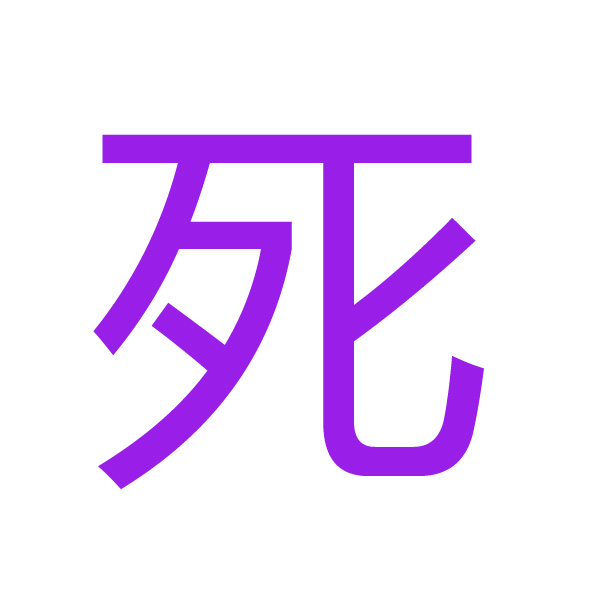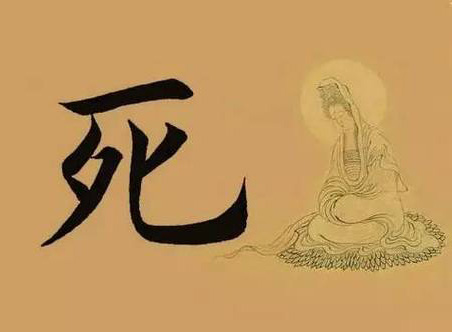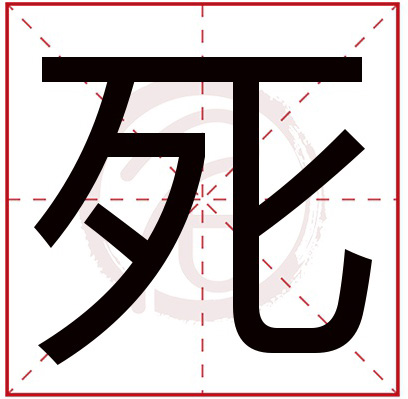The Chinese Character: 死
The character "死" is a direct and potent character in Chinese, representing the concept of "death," "to die," or "dead." It carries a strong, final connotation and is used with care in communication.
1. Stroke Order and Writing
"死" has a specific stroke order that should be followed for correct writing. It has a left-right structure.Stroke Order:
一 (Horizontal stroke) - The top horizontal stroke.
丿 (Left-falling stroke) - The left-slanting stroke from the top.
㇉ (Horizontal折钩) - This is one complex stroke. Write a short horizontal, turn downward (vertical), and finish with a hook to the upper left.
㇆ (Horizontal折钩) - Another complex stroke on the right side. Start writing a horizontal line, then turn sharply downward and slightly inwards, ending with a hook.
丿 (Left-falling stroke) - The final stroke, a slant from the top-right to bottom-left, crossing the previous stroke.
(Tip: For clarity, it is highly recommended to watch a stroke order animation for "死".)

2. Writing Meaning and Structure (Ideographic Origin)
The character "死" is an ancient ideographic character (指事字, zhǐshìzì) whose form vividly depicts its meaning.
Historical Interpretation:
The character is composed of two parts:
Left Side (歹/歺 - è): This component is a pictograph of a cracked bone or the remains of a corpse. It symbolizes decay, misfortune, and the physical end of life.
Right Side (匕 - bǐ): In this context, this is not the weapon "dagger" (though it looks the same). Most scholars believe it represents a person kneeling over or bent towards the remains.
The Combined Image:
The character paints a stark picture: a living person bent in mourning or in the presence of a decaying corpse. This powerful imagery directly conveys the finality and sorrow associated with death.
3. Meaning and Usage
The meaning of "死" is stark and absolute, but it is also used in many extended and metaphorical ways.
Core Meaning: Death, to die, dead.
1. Literal Meaning: Physical Death
死亡 (sǐwáng) - Death; to die (a formal and general term).
死了 (sǐ le) - Has died; is dead. (A direct and common phrase).
死者 (sǐzhě) - The deceased; the dead.
生死 (shēngsǐ) - Life and death.
2. Metaphorical and Figurative Meanings:
Cultural Note:
The word "死" is considered direct and blunt. In many situations, especially when referring to the death of a person, euphemisms are preferred out of respect, such as:
去世 (qùshì) - To pass away.
走了 (zǒu le) - Literally "has left," a common and gentle way to say someone has died.
逝世 (shìshì) - To pass away (more formal and written).




